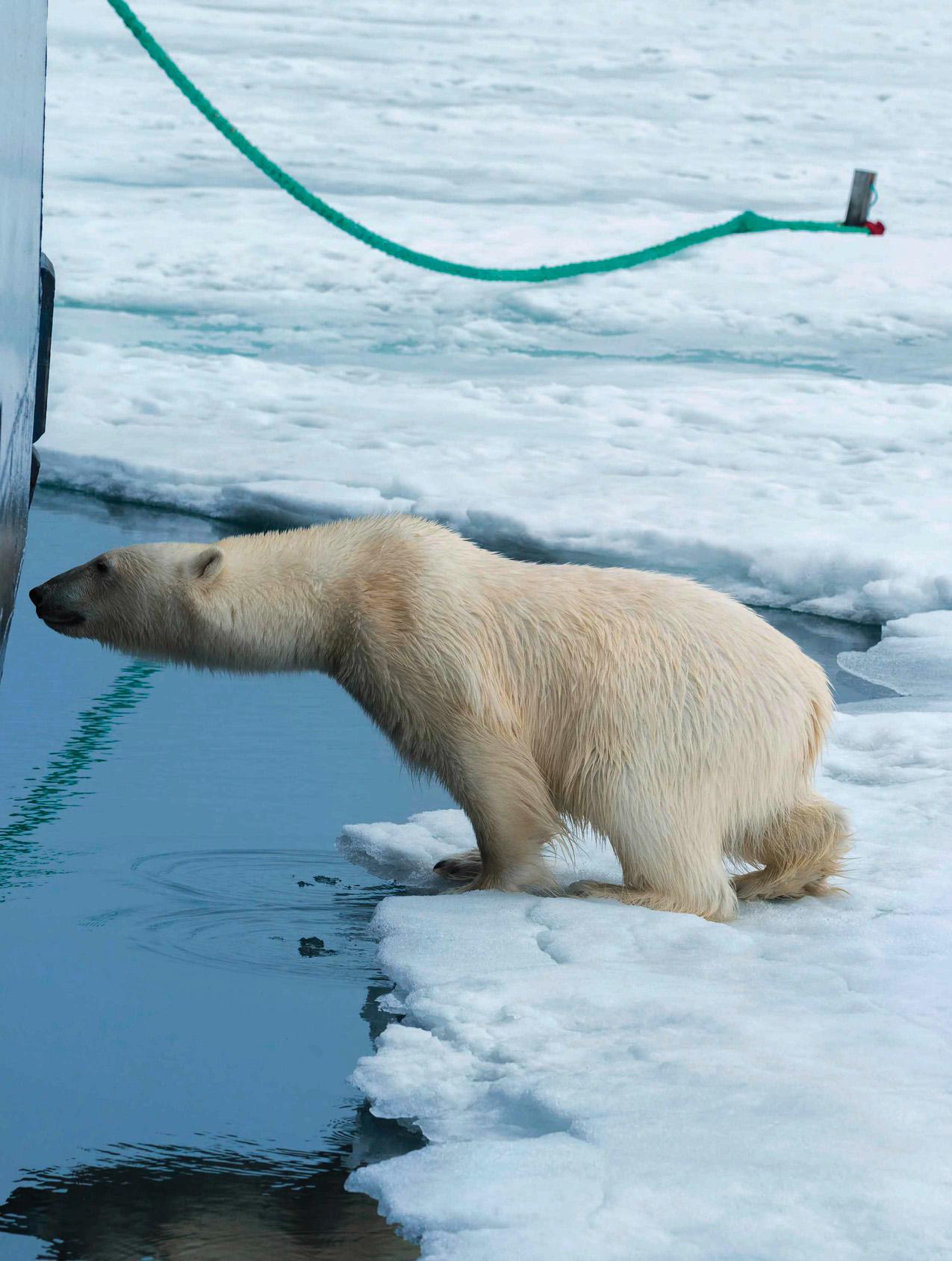Try GOLD - Free
MARK CARWARDINE
BBC Wildlife
|November 2024
"Restricting the distance ships can approach a polar bear is not the answer"

THE NORWEGIAN GOVERNMENT is introducing far-reaching changes to the regulations for polar bear watching. No one will be able to approach closer than 300m between 1st July and 28th February and 500m from 1st March to 30th June. If a bear swims or walks towards a ship, even if it is anchored, the ship will have to move away.
Furthermore, Zodiac inflatable boats won’t be allowed to get any closer than 150m from walrus haulouts, or 500m from seabird cliffs. And there will be a significant reduction in landing sites, from around 240 to just 43 (inevitably causing a far greater impact on these few sites) with a weirdly arbitrary limit of 39 people allowed ashore at 13 sites and 200 at all the others (still far too many in my opinion).
This story is from the November 2024 edition of BBC Wildlife.
Subscribe to Magzter GOLD to access thousands of curated premium stories, and 9,500+ magazines and newspapers.
Already a subscriber? Sign In
MORE STORIES FROM BBC Wildlife

BBC Wildlife
SNAP-CHAT
Lara Jackson talks magical otters, curious rhinos and ticks in the toes
3 mins
October 2025

BBC Wildlife
What's the difference between global warming and climate change?
PEOPLE OFTEN USE THE TERMS global warming and climate change interchangeably, but they describe different concepts. Global warming refers to Earth’s increasing surface temperature.
1 min
October 2025

BBC Wildlife
THE FROZEN CONTINENT
Visit the epic landscapes of Antarctica with HX Hurtigruten Expeditions, the unique cruise line made for curious travellers
3 mins
October 2025

BBC Wildlife
Dragonfly dialogue
STARTED TALKING TO DRAGONFLIES IN India at a place where my husband and I stayed several times in the foothills of the Himalayas.
1 mins
October 2025

BBC Wildlife
What's the largest animal gathering on Earth?
PEOPLE LOVE A PARTY. BUT AS POPULOUS as our species is, the headcounts at our gatherings don't match those of other species. The Maha Kumbh Mela, a Hindu pilgrimage in Prayagraj, India, drew more than 660 million people in January 2025. But this horde - thought to be the largest in human history – pales in comparison to the groups formed by our animal relatives.
1 mins
October 2025

BBC Wildlife
Do plants have memory?
TO HAVE TRUE MEMORY AN ORGANISM requires brain cells to store experiences through the action of sophisticated neurotransmitters. Plants lacking brain cells therefore cannot be said to have that capacity for memory. However, there is evidence that some plants adapt their characteristics based on 'remembered' experiences.
2 mins
October 2025

BBC Wildlife
wild OCTOBER
7 nature encounters for the month ahead
3 mins
October 2025

BBC Wildlife
Do sharks have bones?
WHILE HUMANS HAVE A BONY skeleton, parts of our bodies - such as our noses - are made of cartilage. This soft, flexible material forms the entire skeletons of sharks and rays.
1 min
October 2025

BBC Wildlife
KATE BRADBURY
As the nights draw in, encountering bats can be a magical adventure
2 mins
October 2025

BBC Wildlife
Cool runners of the desert
The beetle that beats the heat by sprinting
1 mins
October 2025
Listen
Translate
Change font size

